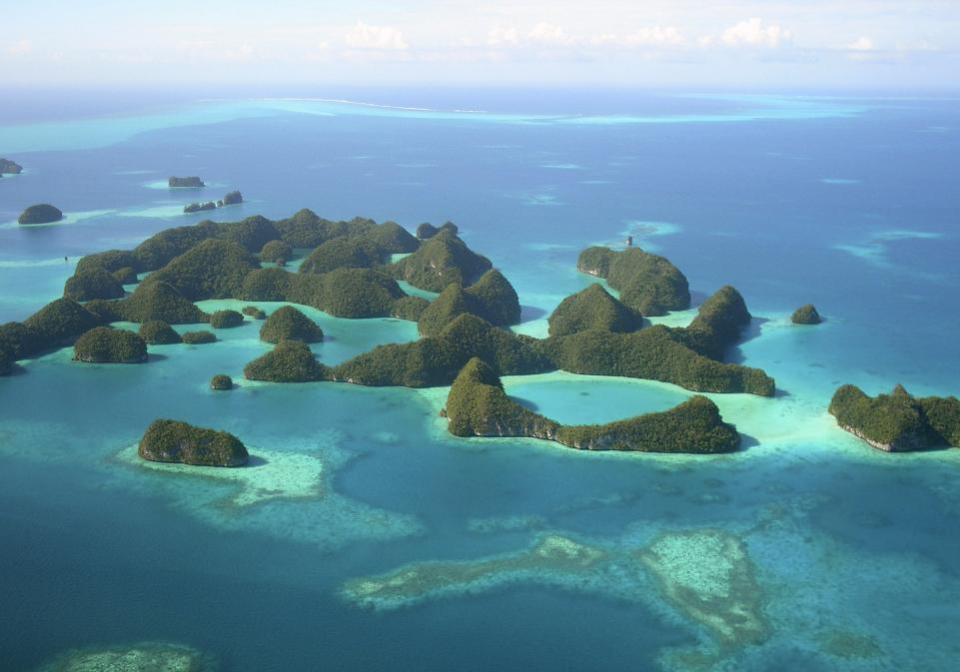Tiny U.S. Ally to Host Big Radars to Watch North Korea
The U.S. has found a new ally in its quest to undermine North Korea's Kim Jong Un, whose nuclear and ballistic weapons arsenal has increasingly frustrated Washington.
The tiny Pacific archipelago nation of Palau and the U.S. Embassy in Koror released a statement Monday announcing the two were preparing to install U.S. radar towers that will give the Pentagon a more expansive look across the Asia-Pacific. While the statement said the plan was devised prior to North Korea's recent threats against the nearby U.S. island territory of Guam, the proposal reportedly came days after North Korea tested its first intercontinental ballistic missile (ICBM) and days prior to its second test.
Related: North Korea says it can fight "any war" with U.S. now that it has ICBM nuclear weapons
"The radar systems will provide Palau enhanced maritime law enforcement capability in its territorial waters and exclusive economic zone, while also providing the United States with greater air domain awareness for aviation safety and security," according to the statement shared by the Office of the President of the Palau Republic's official Facebook account.
"This project is essential to the well-being of the Republic of Palau’s air and maritime domains, as well as to the ability of the United States to maintain its defense of the Republic of Palau," it added.
Unlike Guam, Palau is a sovereign country. It has maintained no military of its own since gaining independence from the U.S. in 1994 and relies on the U.S. for defense. A number of U.S. allies in the region have grown concerned over the intensity of the war of words between President Donald Trump and nuclear North Korea, which earlier this month threatened Guam in a detailed attack plan that was disclosed shortly after Trump said he would unleash on North Korea "fire and fury like the world has never seen."
Palauan President Tommy Remengesau Jr.'s statement said his government received the U.S. proposal to install the Air and Maritime Domain Awareness Radar Systems on July 18. Officials from both countries reportedly met on August 16 so Palau could "relay all issues and concerns expressed" by stakeholders, which reportedly include the country's parliament, executive branch, state governors and speakers, traditional leaders and landowners, among others.
The next day, representatives of both sides met again to discuss matters in more depth and, since then, "have narrowed down the scope of the necessary remaining details, which, due to their sensitive nature cannot be disclosed at this time," according to the statement.

Over the years, control of Palau has been passed among a number of colonizers, including the Philippines, Spain, Germany, Japan and, finally, the U.S., which seized the island from the Japanese Empire in 1944 as the two forces clashed amid World War II.
The U.S.'s expulsion of Japanese imperial forces from the Korean Peninsula set the stage for the current crisis in the region. After a three-year bloody war between the communist North, backed by China and the Soviet Union, and the right-wing South, backed by the U.S. and other U.N. forces, the two sides signed an armistice in 1953, but they have technically remained at war ever since.
Related Articles


